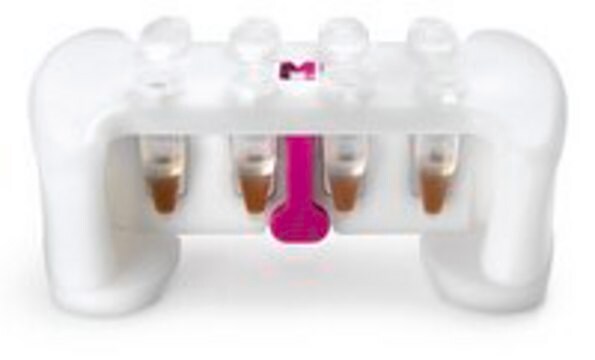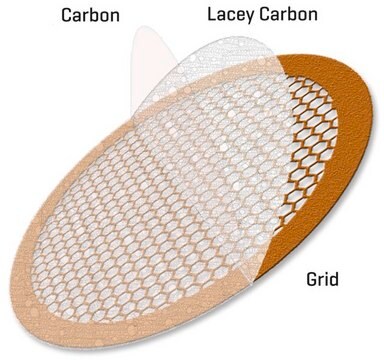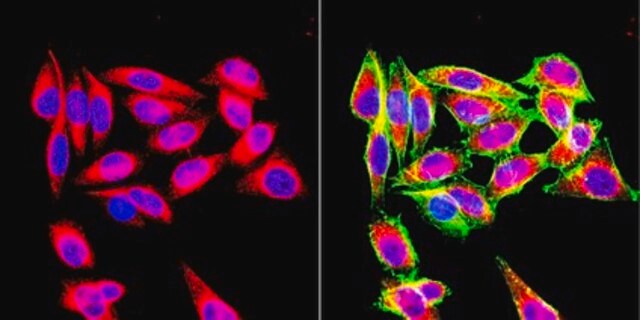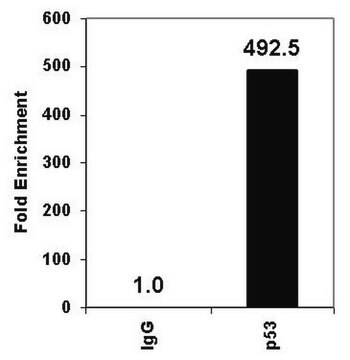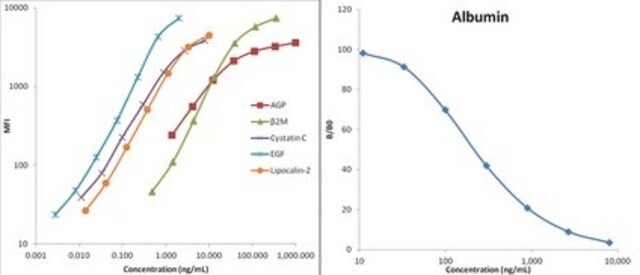MABE1791M
Anti-KAT2A (GCN5) Antibody, clone 2GC-2C11
clone 2GC-2C11, from mouse
Synonym(s):
Histone acetyltransferase KAT2A, EC: 2.3.1.48, General control of amino acid synthesis protein 5-like 2, Histone acetyltransferase GCN5, HsGCN5, Lysine acetyltransferase 2A, STAF97
About This Item
Recommended Products
biological source
mouse
Quality Level
antibody form
purified antibody
antibody product type
primary antibodies
clone
2GC-2C11, monoclonal
species reactivity
human, mouse
packaging
antibody small pack of 25 μg
technique(s)
immunoprecipitation (IP): suitable
western blot: suitable
isotype
IgG1κ
NCBI accession no.
UniProt accession no.
target post-translational modification
unmodified
Gene Information
human ... KAT2A(2648)
Related Categories
General description
Specificity
Immunogen
Application
Immunoprecipitation Analysis: A representative lot detected KAT2A (GCN5) in Immunoprecipitation applications (Brand, M., et. al. (2001). EMBO J. 20(12):3187-96).
Western Blotting Analysis: A representative lot detected KAT2A (GCN5) in Western Blotting applications (Riss, A., et. al. (2015). J Biol Chem. 290(48):28997-9009; Helmlinger, D., et. al. (2006). PLoS Biol. 4(3):e67; Brand, M., et. al. (2001). EMBO J. 20(12):3187-96).
Quality
Western Blotting Analysis: 2 µg/mL of this antibody detected KAT2A (GCN5) in 10 µg of HeLa cells nuclear extract.
Target description
Physical form
Other Notes
Not finding the right product?
Try our Product Selector Tool.
Storage Class Code
12 - Non Combustible Liquids
WGK
WGK 1
Flash Point(F)
Not applicable
Flash Point(C)
Not applicable
Certificates of Analysis (COA)
Search for Certificates of Analysis (COA) by entering the products Lot/Batch Number. Lot and Batch Numbers can be found on a product’s label following the words ‘Lot’ or ‘Batch’.
Already Own This Product?
Find documentation for the products that you have recently purchased in the Document Library.
Our team of scientists has experience in all areas of research including Life Science, Material Science, Chemical Synthesis, Chromatography, Analytical and many others.
Contact Technical Service